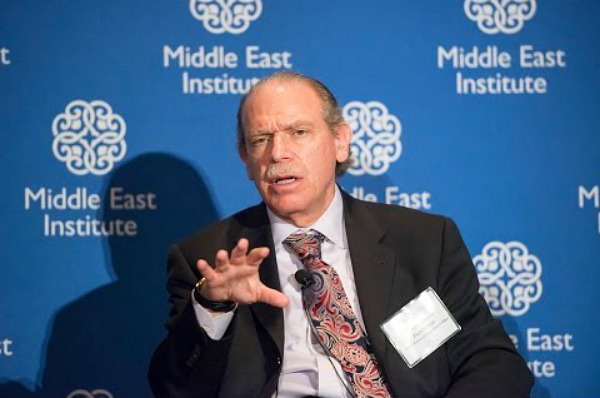In a piece for the Just Security blog (6/5/17) about the impact of weapons industry contributions on a Saudi arms vote, Ryan Goodman notes that “money also pollutes other policy spaces that influence congressional votes”—including the news media:
In March of this year, the Senate Foreign Relations Committee invited former ambassador Gerald Feierstein—director of the Center for Gulf Affairs at the Middle East Institute—to speak about the situation in Yemen and about his views on the sale of US arms to the Saudis. As one might have anticipated from his interview in the Washington Post, Feierstein told the committee, “Accusations of war crimes leveled against Saudi and Coalition armed forces and threats to end arms sales to the Saudis have the potential to inflict long-lasting damage to these relationships.” Limiting the supply of munitions, he said, would be “counter-productive,” and he added, “I don’t understand why if you’re concerned about Saudi actions causing collateral damage you would limit the ability of them to acquire the kinds of weapons that would limit collateral damage and would allow them to be more accurate.” (The answer is that you may be concerned the Saudis would use those more accurate weapons to target civilians, funeral homes and other objects on a no-strike-list.)
Never disclosed in the Washington Post interview or in the Senate hearing was the source of funding for Feierstein’s Middle East Institute. According to its most recent public report, the Institute counts among its chief donors leading members of the Saudi-led coalition in Yemen and major arms manufacturers. Saudi Arabia and Kuwait provide the highest level of support as “Platinum Sponsors,” and the UAE is also a donor. Raytheon, the manufacturer of the very weapons at issue in the Senate hearing, is a Gold Sponsor of the Institute. It is worth noting, of course, that the Middle East Institute is not unique in Washington. The defense industry and foreign governments pump money into many think tanks.
The conflicts of interest posed by think tank funding are an endemic problem in establishment journalism, which often presents industry-funded institutes as neutral experts. For a recent example, see “Lockheed Martin–Funded Experts Agree: South Korea Needs More Lockheed Martin Missiles,” by Adam Johnson (FAIR.org, 5/8/17).
h/t Robert Naiman
Messages can be sent to the Washington Post at letters@washpost.com, or via Twitter @washingtonpost. Please remember that respectful communication is the most effective.

